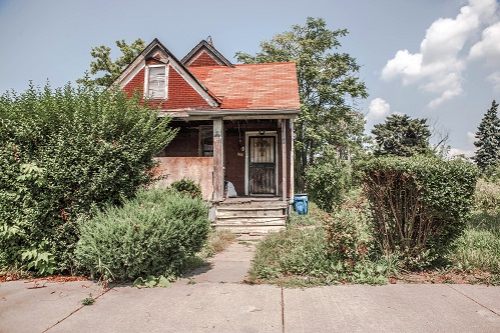- What does hurricane insurance cover in Florida?
- Does homeowners insurance cover hurricane damage in Florida?
- Do you have to have hurricane insurance in Florida?
- How does hurricane insurance work in Florida?
- How much is hurricane insurance in Florida?
- How to file a hurricane insurance claim in Florida
- When does a hurricane deductible apply in Florida?
What does hurricane insurance cover in Florida?
While hurricane insurance isn’t a separate policy, Florida homeowners insurance policies generally include some amount of windstorm hurricane coverage. Sometimes, you’ll need a windstorm or named storm endorsement added to your policy or even a separate policy.
This will cover damage from wind, hail, and rain that comes in through a damaged roof or windows. It won’t, however, cover overland flooding. You’ll need a flood insurance policy for that type of damage. Combined, homeowners, windstorm and flood insurance cover most aspects of hurricane damage.
Does homeowners insurance cover hurricane damage in Florida?
Under Florida law, insurers typically have to include windstorm coverage, though homeowners can elect to decline this coverage. However, some homeowners are required by lenders or want to obtain wind coverage from the Citizens Property Insurance Corporation (an entity created by the state) or private insurance companies.
When part of homeowners insurance policies, windstorm/hurricane coverage in Florida applies to storms declared to be hurricanes by the National Hurricane Center of the National Weather Service.
Per the Florida Department of Financial Services, hurricane coverage in Florida “includes damage to the interior of a building or to property inside a building, caused by rain, snow, sleet, hail, sand or dust if the direct force of the windstorm first damages the building, causing an opening through which rain, snow, sleet, hail, sand or dust enters and causes damage.”
This coverage protects against issues like damage to personal belongings, your home and costs stemming from the loss of use of your home.
However, hurricane coverage as part of standard homeowners insurance policies in Florida typically has a separate deductible. A hurricane deductible is usually a percentage of between 2% and 10% of the homeowners dwelling coverage limit, with some exceptions.
Note that hurricane coverage as part of homeowners insurance policies does not cover flood damage, such as from storm surges. To protect against flood risk, homeowners need to buy separate flood insurance.
Do you have to have hurricane insurance in Florida?
Hurricane coverage may be required in Florida, depending on the situation.
As mentioned, residential homeowners insurance typically has to offer windstorm coverage, which protects against some aspects of hurricanes, but homeowners may be able to decline that coverage. However, some lenders, particularly for homeowners at high risk for hurricane damage, may require hurricane coverage.
Since hurricane insurance isn’t sold as a separate policy, this coverage might include opting into a homeowners policy with windstorm coverage, buying a separate wind insurance policy and buying a flood insurance policy.
Floridians with homeowners policies from state insurer of last resort Citizens Insurance are newly required to buy flood insurance by at least January 1, 2027, if not now, depending on the property details.
How does hurricane insurance work in Florida?
Hurricane insurance in Florida works in a few different ways. Most homeowners get some protection through their homeowners insurance policies via windstorm coverage, but there’s generally a separate deductible for hurricanes.
Some homeowners also buy windstorm insurance policies from private companies or wind-only policies, such as through Florida’s state-run insurer Citizens. Floridians can also buy flood insurance to fill in gaps in coverage, as hurricane coverage does protect against storm surges due to hurricanes or other overland flooding.
Altogether, Florida homeowners can face a tricky, patchwork environment when it comes to insuring against hurricanes, and it can even be hard to qualify in some situations, which can affect real estate decisions.
"The smart buyer should consider insurance one of their key criteria in a purchase decision,” says Christian Busch, Broker Associate at R Florida. “I advise most buyers to stick to properties constructed post-2000 due to the tighter building code that was passed then. And in any purchase decision, I put my clients in touch with one to two smart insurance brokers who can provide quotes even before a contract is signed. A lot of older buildings are becoming hard to/impossible to insure, and as a buyer you want to be prepared.”
People ask
How long does an insurance company have to settle a hurricane claim in Florida?
Florida law requires that an insurance company issue a claims check within 30 days. However, since hurricane repairs can take a long time, full payment may take longer.
How much is hurricane insurance in Florida?
Determining how much hurricane insurance in Florida costs is difficult considering that there’s not a unified hurricane insurance policy but rather several policies.
To get a baseline, though, consider that the average home insurance policy in Florida costs $4,218 annually, based on a $300,000 dwelling coverage, a $1,000 regular deductible, 2% hurricane deductible and $300,000 in liability coverage.
For flood insurance in Florida, the average cost is $544 for a policy from the National Flood Insurance Program (NFIP).
Still, actual costs vary widely depending on factors like your risk for hurricane damage, flooding, home value and more. So, it’s helpful to shop around to understand what hurricane coverage will cost you.
How to file a hurricane insurance claim in Florida
Filing a hurricane insurance claim in Florida is similar to filing any home insurance claim. Follow the steps your insurer outlines, including documenting the damage and submitting paperwork. You generally have one year from the date a hurricane makes landfall to make a claim.
Remember, however, that homeowners policies in Florida typically have a separate hurricane deductible that you have to hit before your insurer would pay for a claim. Hurricane deductibles in Florida are annual rather than per incident, so if more than one hurricane strikes in a year, you’ll only pay the deductible once.
If there is flood damage, you must file a separate claim with your flood insurance provider and pay a separate flood insurance deductible.
People ask
Can I change my hurricane deductible in Florida?
Yes. Contact your insurance company to find out what deductible options are available.
When does a hurricane deductible apply in Florida?
A hurricane deductible applies when damage to your home occurs due to a storm officially designated as a hurricane. In some cases, the wording on your policy may be “named storm” rather than “hurricane”. In that case, any named storm would fall under that designation, including tropical storms that haven’t reached hurricane status.
Hurricane coverage in Florida can add up and be complex, but it’s important for homeowners to have the right coverage in place, considering the risk of wind, rain and flood damage. Changing laws and lender requirements, along with a changing climate, might necessitate additional hurricane protection, like wind insurance or flood insurance.




